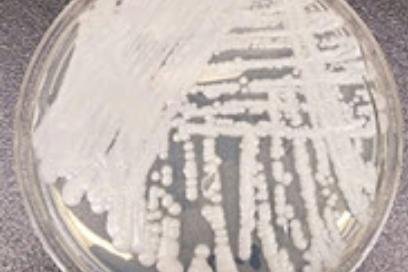1 of 5 | The CDC labeled Candida auris as a "global emerging threat" in 2017. Photo courtesy Shawn Lockhart/Centers for Disease Control and Prevention
July 23 (UPI) -- Officials say a drug-resistant "superbug" fungus has spread among patients in hospitals and long-term care facilities in Washington, D.C., and a city in Texas and preys on those with weakened immune systems.
The clusters with the Candida auris fungus appear to be unrelated, according to the Centers for Disease Control and Prevention. The spread seems to be related to person-to-person transmissions, officials said.
"Candida auris is an emerging, often multidrug-resistant yeast that is highly transmissible, resulting in healthcare-associated outbreaks, especially in long-term care facilities," the CDC said in a statement Friday. "Skin colonization with [Candida auris] allows spread and leads to invasive infections, including bloodstream infections, in 5%-10% of colonized patients."
The CDC labeled Candida auris as a "global emerging threat" in 2017. The agency said then that it didn't appear most cases of the fungus were spread person-to-person, which makes the new cases identified in the new study concerning among researchers.
"Each [of the current] cluster involved common health care encounters and no known previous echinocandin exposure, suggesting transmission of pan- and echinocandin-resistant strains for the first time in the United States," the CDC noted.
There have been more than 120 cases of Candida auris identified in Washington, D.C., and and undisclosed city in Texas.
"Among 101 clinical and screening cases of [Candida auris] in D.C. during January-April 2021, three had an isolate that was pan-resistant," the agency said.
"Among 22 clinical and screening cases of [Candida auris] in Texas during the same period, two were pan-resistant and five were resistant to both echinocandins and fluconazole."
The CDC said clinicians should consider early antifungal susceptibility testing in patients with Candida auris infection, especially in those with treatment failure.















